Sleep Apnea Therapy
Tired of Feeling Tired?
Sleep apnea is more than just snoring; it’s a silent disruptor of your nights and your health. If you’re waking up gasping for air, feeling groggy all day, or struggling with brain fog and irritability, you might like to come get checked by Dr. Karamardian.
At Los Gatos Dental Group, we help you uncover the root of your sleep concerns and create a plan that brings back deep, restorative rest – thoughtfully considering your lifestyle, travel habits, comfort preferences, and long-term goals so the solution actually works for you!
Book An Appointment Patient Info
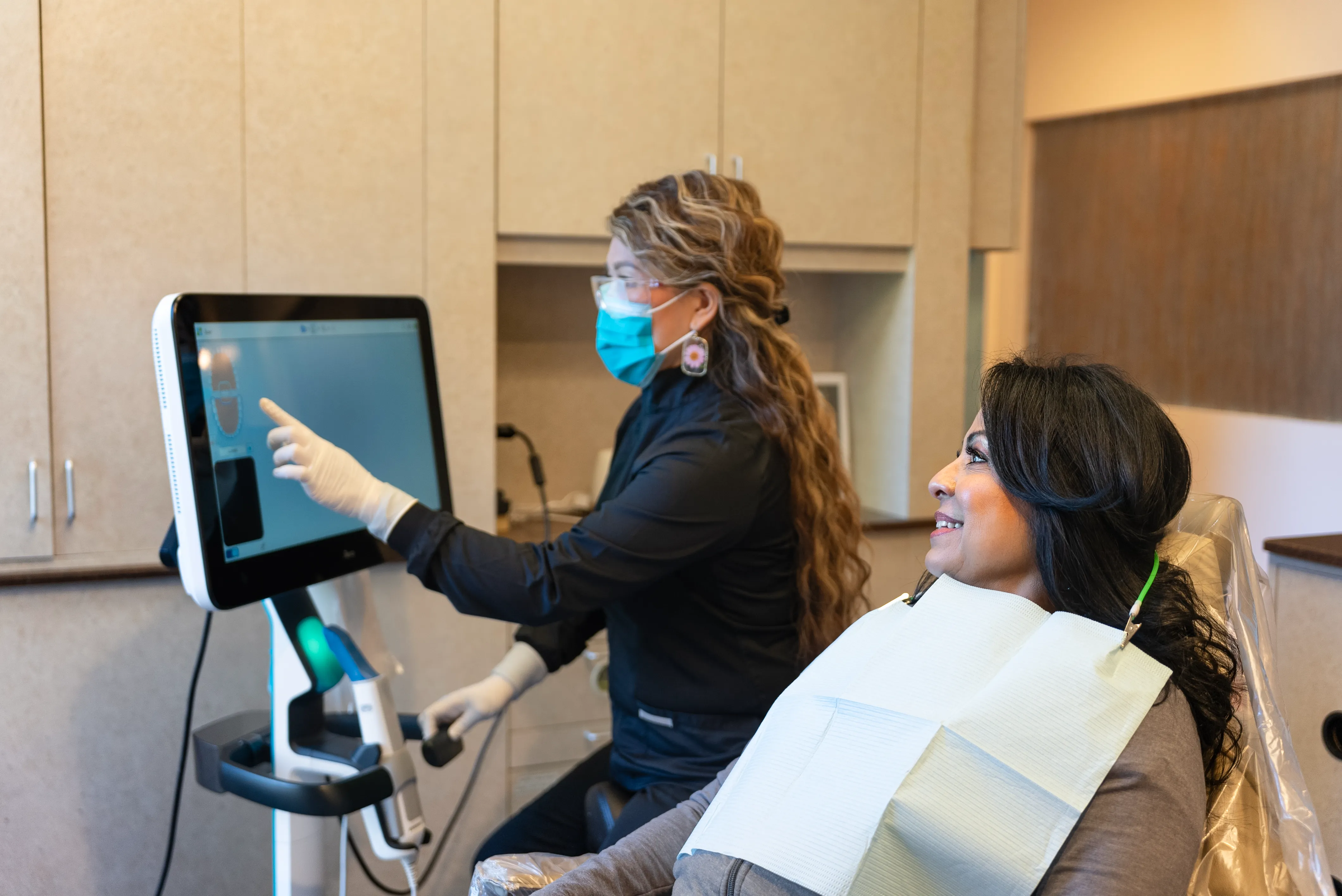
Why Choose Los Gatos Dental Group for Sleep Apnea Therapy?
- Customized Sleep Apnea Therapy
- Experienced Sleep Apnea Dentist
- Friendly & Attentive Dental Team
What Is Sleep Apnea?
A Breathing Problem That Affects Your Whole Body
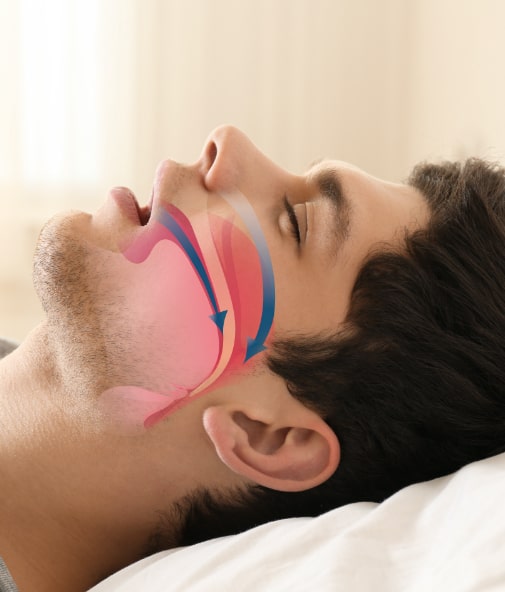
Sleep apnea happens when your airway becomes blocked during sleep, causing repeated pauses in breathing throughout the night. These interruptions can be brief, but over time, they take a serious toll on your heart, brain, mood, and energy levels.
The most common form, obstructive sleep apnea (OSA), is often caused by the collapse of soft tissues in the throat. If left untreated, it can increase your risk for high blood pressure, cardiovascular issues, diabetes, and depression. Many people don’t even know they have it – only that they’re tired all the time!
How Do I Know If I Have Sleep Apnea?
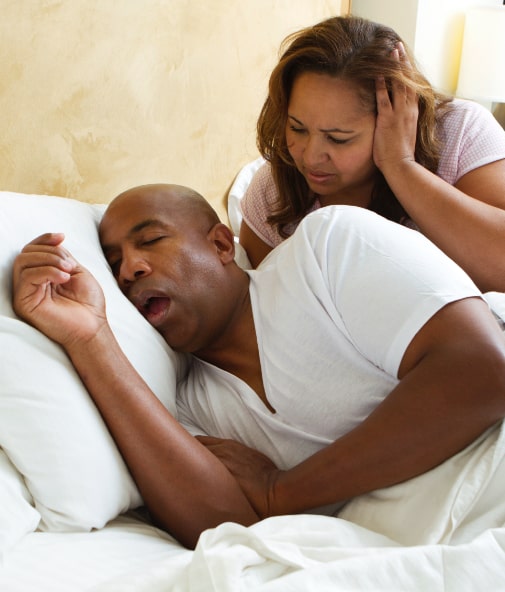
You might have sleep apnea if you or a partner have noticed any of the following:
- Loud, chronic snoring
- Choking, gasping, or snorting during sleep
- Waking up with a dry mouth or headache
- Daytime fatigue, no matter how early you went to bed
- Mood changes, brain fog, or trouble focusing
- Waking up multiple times a night to use the bathroom
If this sounds familiar, a sleep study (often done at home or in a sleep lab) can help confirm a diagnosis. The study measures how often your breathing stops (your AHI score) and how severe your sleep apnea is. From there, we can help you understand your options.
Finding the Right Sleep Apnea Treatment for You
You might be wondering:
“Do I have to wear a CPAP forever?”
“Is there something more comfortable?”
“What if I travel a lot?”
We’re here to walk you through it, with effective treatment that works for your body, your life, and your peace of mind.
Still considered the gold standard, CPAP (Continuous Positive Airway Pressure) therapy delivers a gentle stream of air through a mask while you sleep, keeping your airway open. It’s highly effective, especially for moderate to severe cases, but some people find it hard to wear, especially if you toss and turn or struggle with dryness or discomfort.
If CPAP hasn’t been the right fit – or if you’re looking for a more compact, travel-friendly solution – oral appliance therapy might be for you. These custom-made devices gently reposition your jaw or tongue to keep your airway open. They’re quiet, easy to use, and much more discreet than a machine.
Vivos goes beyond nightly relief. It works to gently remodel and widen your airway, treating the root cause of sleep apnea. With a custom-fit appliance worn over time, many patients see lasting improvements in 12–24 months, sometimes eliminating the need for ongoing devices altogether.
For certain cases, especially when CPAP alone isn’t cutting it, we may recommend using both an oral appliance and CPAP together. It’s not as common, but it can be effective for severe cases.
The Benefits of Sleep Apnea Treatment
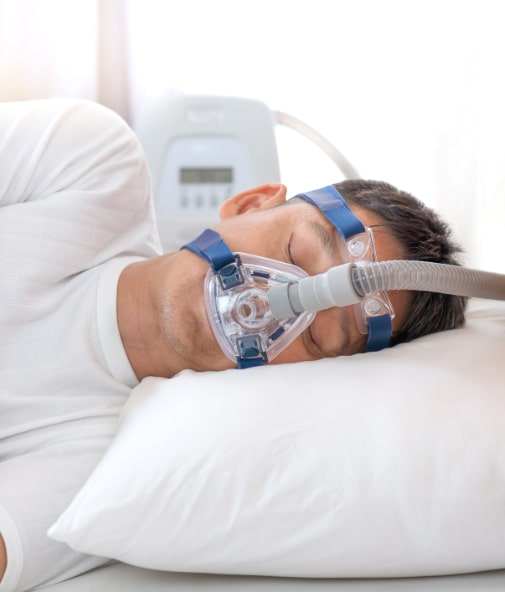
- No more snoring
- Reduced anxiety and fatigue
- Increased productivity
- Fewer headaches
- A reduced risk of hypertension, diabetes, stroke, and Alzheimer's disease
Vivos® Sleep Apnea Therapy
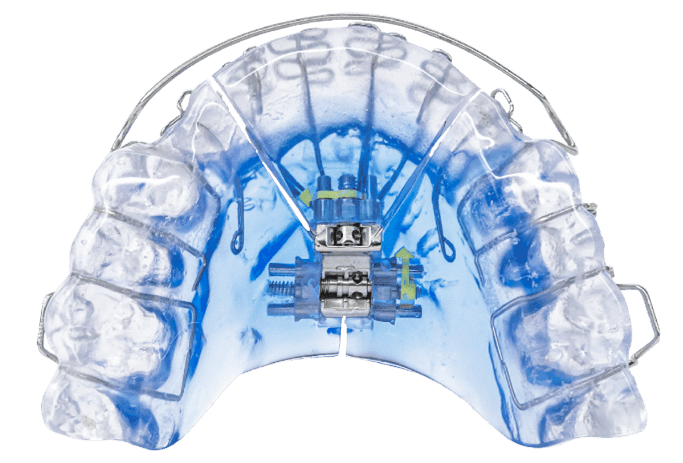
What makes Vivos truly exceptional isn’t just the custom-fit appliance; it’s the intelligent, data-driven system behind it. Unlike conventional treatments that simply bulldoze symptoms, Vivos is designed to correct the underlying cause of sleep apnea: narrow airways.
With Vivos, we can:
- Gather advanced diagnostics: using 3D imaging, sleep tracking, and home sleep rings to get a full picture of your airway and breathing patterns.
- Guide natural jaw growth and expansion: the appliance gently encourages the jaw and palate to widen, permanently opening space in the airway.
- Personalize every step: treatment is tailored to your unique airway anatomy, comfort, and health goals.
Treatment typically takes 12–18 months and can often reduce or even eliminate the need for CPAP. Many patients describe it as life-changing: not just quieter nights, but brighter, more energized days – without drugs or invasive surgery.
Vivos® Guides for Children
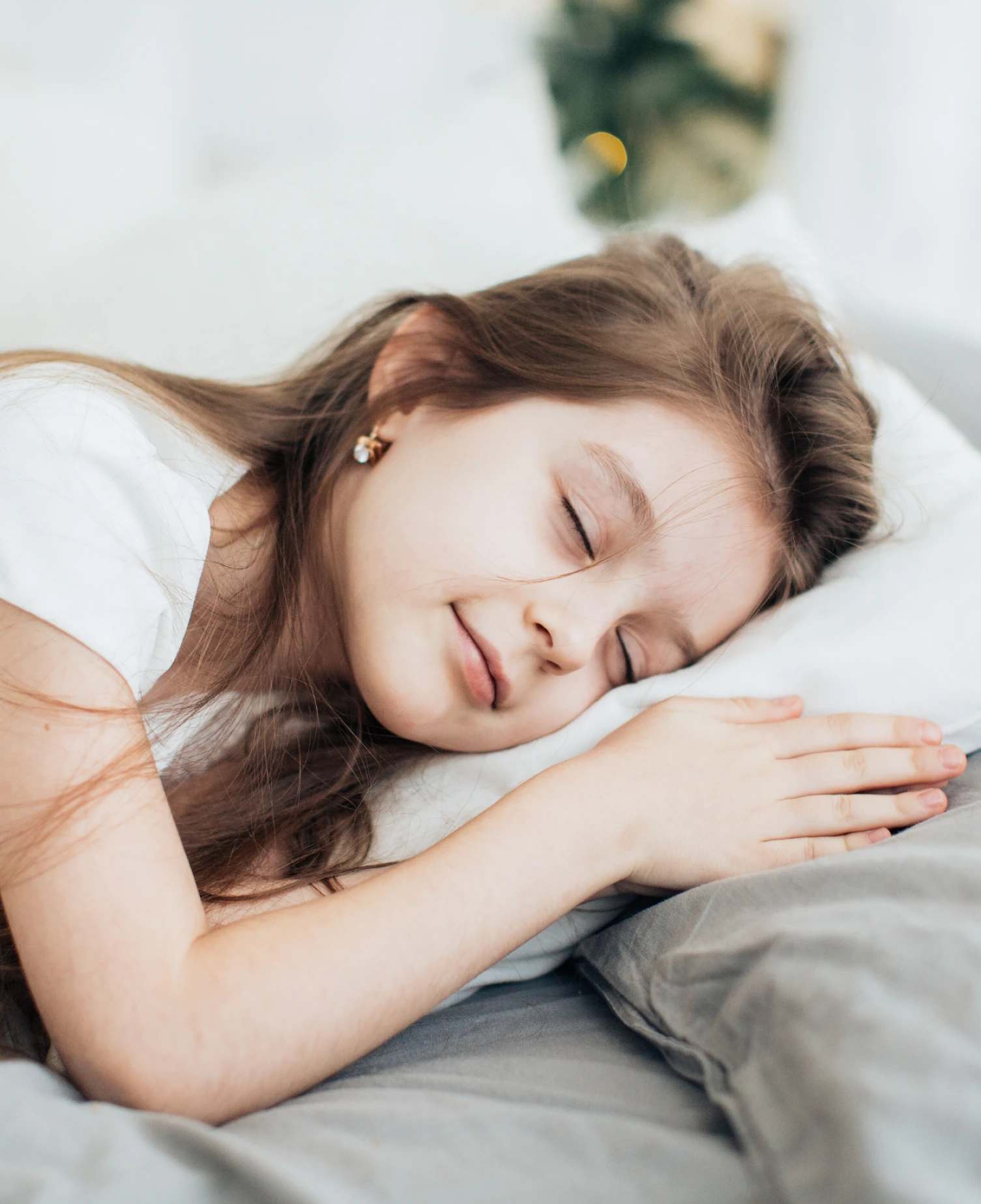
Obstructive Sleep Apnea doesn’t just affect adults – children can struggle too, and it can impact their development in surprising ways. Poor sleep and restricted breathing may be linked to crooked teeth, ADHD-like symptoms, night terrors, bedwetting, and more.
The Vivos Guides work with a child’s natural growth cycles to gently guide proper jaw and airway development. Starting as early as age 4, these guides help encourage:
- Healthier airway growth
- Improved facial symmetry
- Better sleep and oxygen intake
The guides are FDA-registered orthodontic devices, worn mostly at night, and can make a profound difference in your child’s sleep, behavior, and long-term health.
Sleep Apnea Symptoms in Children
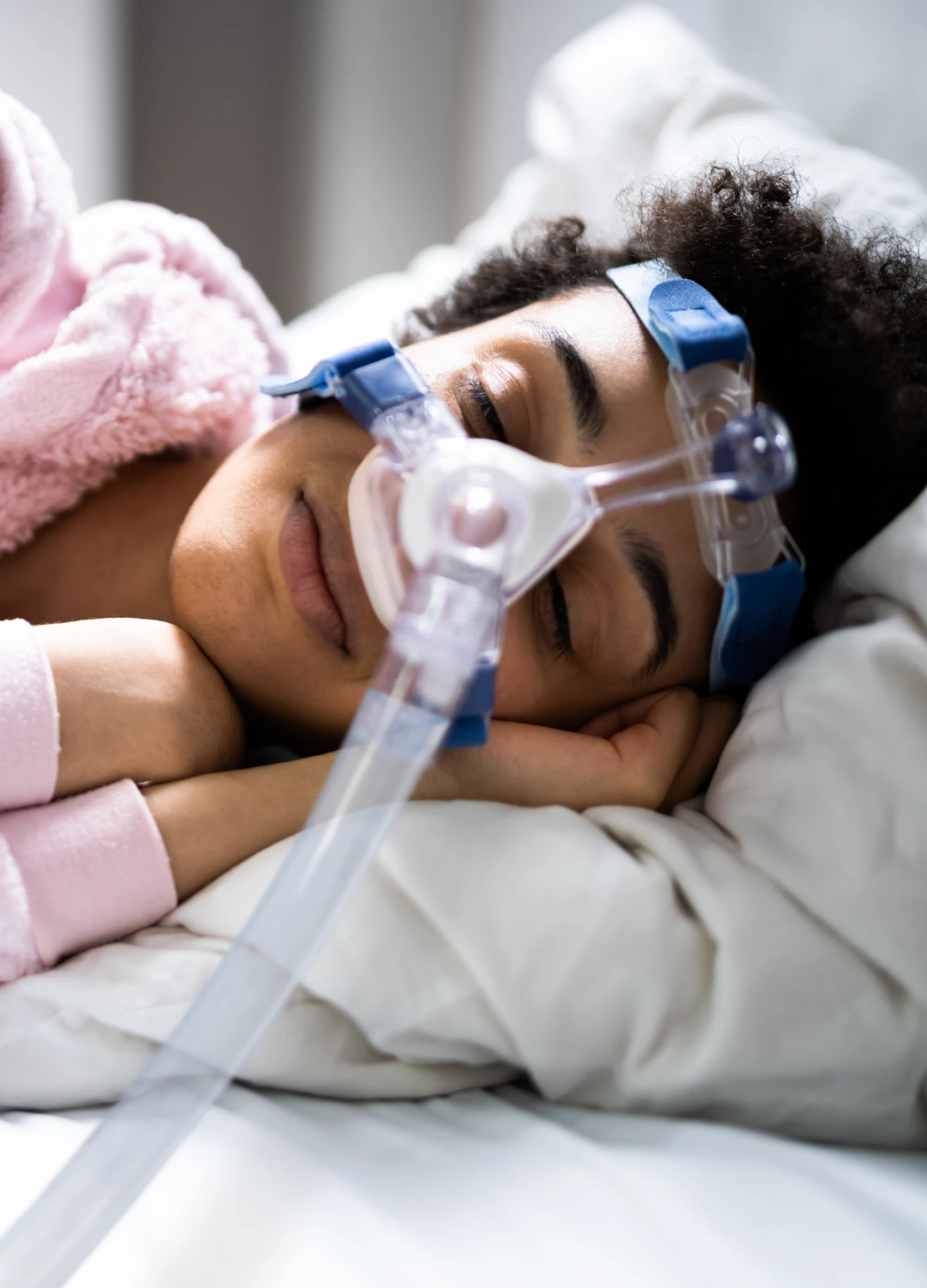
- Snoring
- Restless sleep
- Swollen adenoids or tonsils
- Dental cavities
- Bed wetting
- Arrested or delayed growth
- Chronic allergies
- Eczema
- Depression
- Asthma
- Headaches
Stanford research suggests that modern lifestyles – including softer diets and chronic allergies – may be contributing to smaller jaws and narrower airways in children, making therapies like this more important than ever.
To learn more about how children develop a compromised airway, watch this short video created by Right to Grow (a non-profit organization).
How Does Vivos Actually Work?
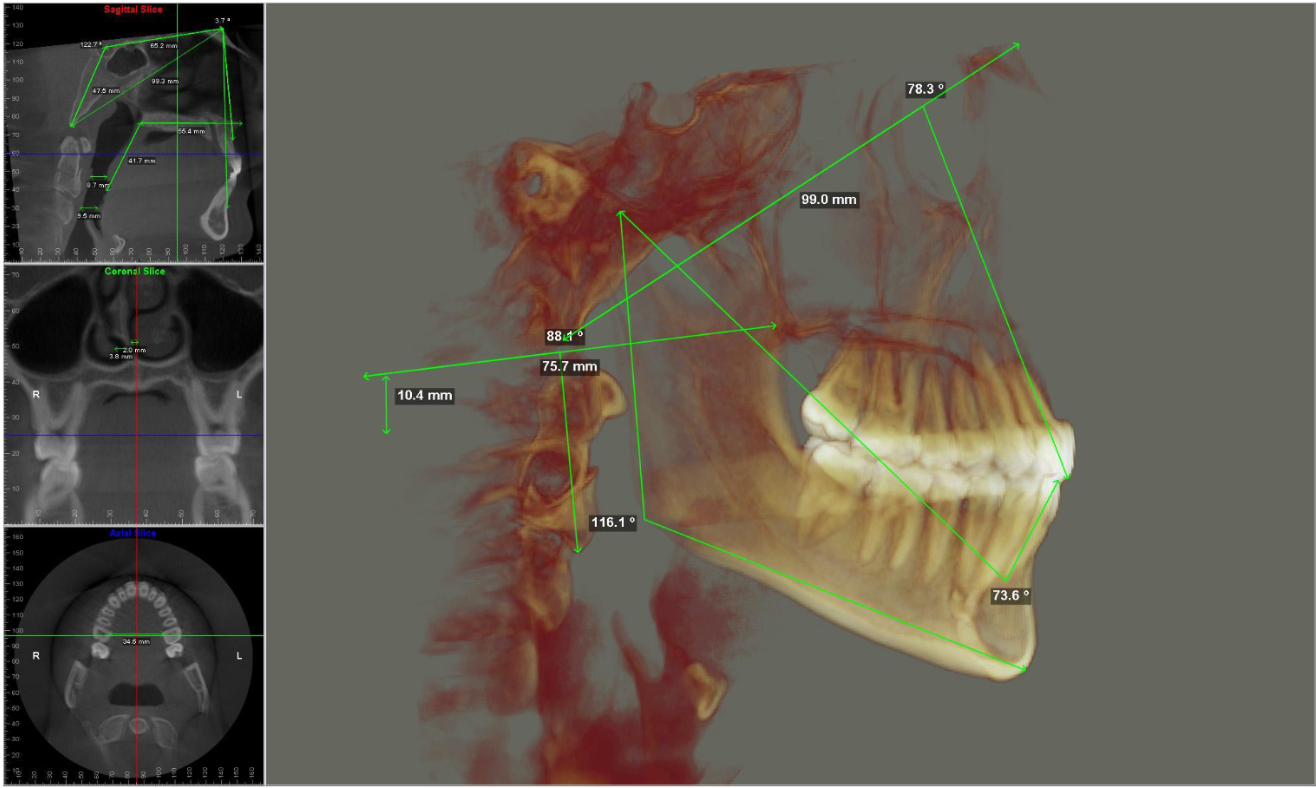
Pneumopedics® is a nonsurgical method for remodeling the upper airway. It involves both naturally occurring and treatment-induced changes that take place over time. Pneumopedics® is a key part of the Vivos system and can be an effective solution in addressing mandibular retrusion and maxillary hypoplasia.
How We Treat Sleep Apnea
A Guided, Compassionate ApproachDr. Karamardian will listen closely to your concerns and take time to understand your symptoms, lifestyle, and goals. If you haven’t had a sleep study yet, we’ll help connect you with a provider to get the answers you need. Then we’ll walk you through your results and discuss the treatment options that make sense for you.
Once we’ve figured out what’s best for you (an oral appliance or a collaborative approach with your sleep physician), we’ll custom-fit your device, adjust it for comfort and effectiveness, and monitor your progress over time.
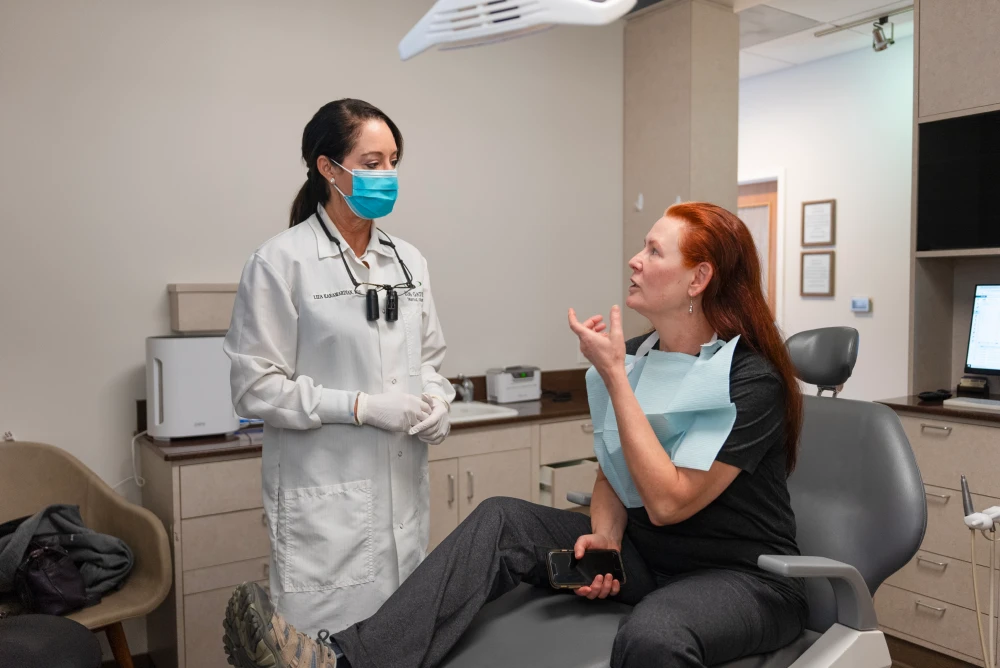 Meet Your Doctor
Meet Your Doctor
What to Expect
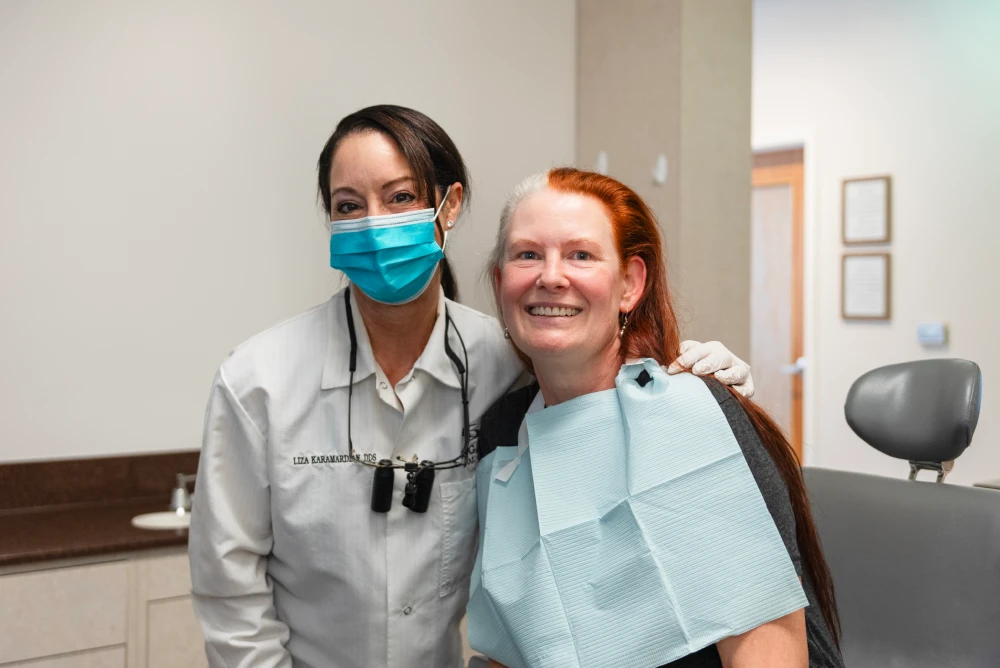
Your journey might look like this:
- Consultation (30–45 minutes): Review your medical history, any prior sleep study, and a clinical exam for oral signs of apnea (like grinding, scalloped tongue, tongue tie, enlarged tonsils, or narrow jaws).
- Education: You’ll receive a short video explaining why sleep apnea is on the rise and how jaw structure plays a role.
- Vivos Records Visit (90 minutes): Includes a Cone-Beam CT scan, photos, digital impressions, head and neck exam, and a take-home sleep ring to measure your AHI. Dr. K then prepares a personalized report.
- Appliance Delivery: If you move forward with Vivos, your custom device arrives in about a month. It works gradually and comfortably, expanding your jaw without pain or pressure. Myofunctional therapy may also be recommended to improve tongue posture and nasal breathing.
- Finishing Phase: Once expansion is complete, some adults may use aligners to fine-tune tooth position and bite.
If Vivos isn’t the right fit, we can still create a sleep appliance in-office – a simpler option for many patients with mild or moderate apnea.
Why Choose Los Gatos Dental Group?
Compassionate Experts Who Put You First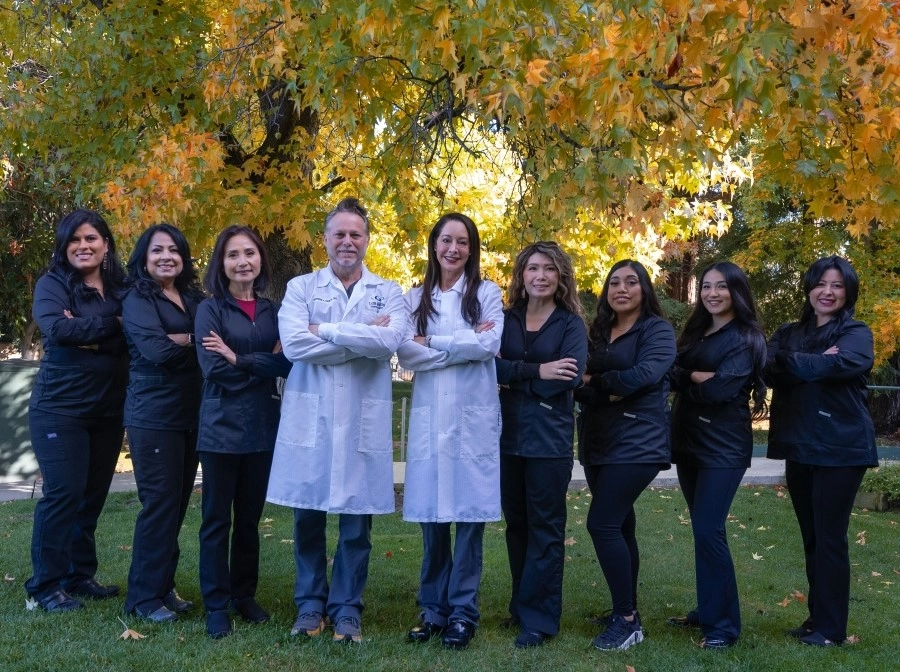
Not every dentist offers sleep apnea treatment – and even fewer are trained in advanced therapies like Vivos. We bring together leading technology, specialized training, and a warm, family-first approach to care.
What sets us apart:
- Advanced diagnostics:From CBCT 3D imaging to home sleep rings, we use modern tools to get the full picture of your airway.
- Expertise with Vivos: As one of the few Bay Area practices offering this innovative therapy, we know how to guide you (or your child) through treatment.
- Whole-family focus: Adults and kids alike can get care under one roof, so your household sleeps better, together.
- Compassionate care: We take the time to listen, answer questions, and create a treatment plan that feels right for you.
When it comes to sleep apnea, our goal is to help you feel rested, clear-headed, and well again.
Ready to Wake Up Refreshed?
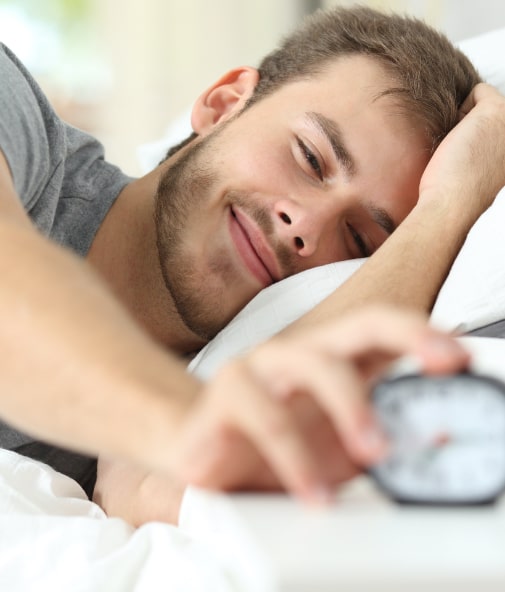
If you’re tired of feeling tired, let’s talk. We’re here to answer your questions, explore your options, and support you on your journey to better sleep, without pressure or judgment.
Book An Appointment Call - (408) 402-0900Frequently Asked Questions
How do I know if I have mild or severe sleep apnea?
A sleep study will determine your AHI score, which tells us how many times you stop breathing per hour. Mild = 5–15, moderate = 15–30, severe = 30+. We use this to tailor your treatment.
Is Vivos therapy better than CPAP?
Not exactly “better,” but different. CPAP is the gold standard for immediate relief—it keeps your airway open while you sleep but only works if you wear it every night. Vivos, on the other hand, aims to correct the underlying issue (narrow airways) by gently expanding the jaw and palate. Many patients prefer it because it’s comfortable, portable, and can provide long-term improvement.
Is oral appliance therapy covered by insurance?
Often, yes, but it depends on your medical insurance plan, not dental. We’ll help you check your benefits and navigate the paperwork so cost doesn’t get in the way of care.
Can I still use an oral appliance if I grind my teeth?
Yes, many devices double as nightguards and can actually help reduce grinding by improving your jaw position.
Will I have to use a sleep apnea device forever?
Not always. Some people use therapy long-term, while others improve their condition through lifestyle changes (like weight loss, addressing nasal congestion, or positional therapy). We’ll reassess regularly.
Is loud snoring always a sign of sleep apnea?
Not always – but it’s one of the most common signs. Apnea-related snoring is usually loud, broken by pauses, gasps, or choking sounds. If your snoring is steady and unbroken, it may not be sleep apnea – but it’s still worth checking out.
Do I need a sleep study in a clinic?
Not anymore. At-home sleep studies are now widely used and often more comfortable. They’re slightly less sensitive than in-lab tests, but they give a more accurate picture of how you sleep in real life.
What if I have central sleep apnea?
Central apnea is different – it’s neurological, not physical. Oral appliances may not be enough on their own, but they can sometimes help make CPAP more tolerable by lowering the pressure.
Am I at risk for sleep apnea?
Risk goes up if you’re over 50, male, have high blood pressure, a larger neck, or a BMI over 25. Still, anyone can have it. If you’re tired, foggy, or snore loudly, come get checked.
Can a humidifier help with sleep apnea?
Yes – it adds moisture to the air, which can ease dry mouth and congestion. It’s especially helpful if you use a CPAP machine.